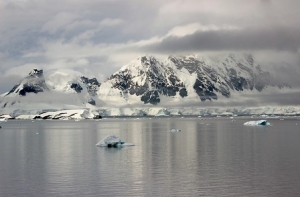 Much has been made in the news about the melting of the polar icecaps and the rising of the Arctic Sea in the past few years due to global warming, but is this really true?
Much has been made in the news about the melting of the polar icecaps and the rising of the Arctic Sea in the past few years due to global warming, but is this really true?
Those who choose to ignore the fact that there is even such a thing as global warming say that the whole thing of melting icecaps is nonsense, and those who are worried about global warming are making a huge deal out of it and are almost becoming Doomsday prophets. So who does one believe then¦?
Are our Icecaps Growing or Melting?
The Arctic region has warmed more than virtually every other region on the planet over the past three decades. This has led to a decrease of around 40% in the extent of sea ice cover since 1980, as documented by satellite observation.
An unusually cool summer in 2013 saw the volume of Arctic sea ice increase by around 30%, and the growth continued well into 2014, resulting in the losses recorded in the three previous years basically being reversed. This has led scientists to believe that summer temperatures have a greater impact on the ice than previously believed, but they say we must not get too excited just yet.
Data gathered by Europe’s Cryosat satellite over the past five years has helped scientists to understand the loss of sea ice volume better and to accurately estimate the volume. Using 88 million measurements of sea ice thickness, they have found that the volume of sea ice decreased by 14% between 2010 and 2012.
Initial findings published in 2013 have since been updated in the journal Nature Geoscience to include 2014 data, and this has shown that, relative to the 2010 to 2012 period, there was a 33% increase in ice volume in 2013 and in 2014 there was 25% more sea ice than there had been between 2010 and 2012.
According to lead author Rachel Tilling from University College London, “We looked at various climate forcing factors; we looked at the snow loading. We looked at wind convergence and the melt season length of the previous summer. We found that the highest correlation by far was with the melt season length – and over the summer of 2013, it was the coolest of the five years we have seen, and we believe that’s why there was more multi-year ice left at the end of summer.”
Scientists say that the study has shown that sea ice is more sensitive to changes than previously thought but that although one year of cooler temperatures can wind the clock back a few years on decades of decline in ice volume, the long-term trend of Arctic temperatures is upwards and the long-term trend of the ice volume is downwards.
Water cooler rentals from Living-Water in London. Get a free water cooler trial.





